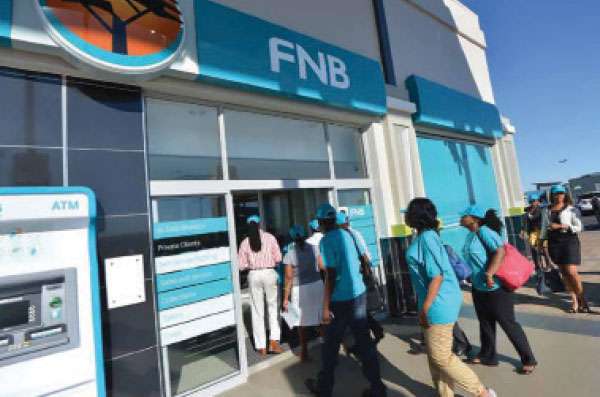Bank rate reaches two-decade-low
A decision by the Monetary Policy Committee (MPC) to slash key lending rate is a blessing for customers while commercial banks are already experiencing profitability challenges - will take a further knock. This is the general view from analysts who spoke to Botswana Guardian on Wednesday, days after a closed-door meeting of the MPC voted in favour of a rate cut from 6,5 percent to 6 percent.
The decision to cut the bank rate ‘is good for consumers because the interest they pay on their loans from commercial banks will be reduced, an investment Analyst Karabo Tladi of Black Thread Capital said on Wednesday afternoon. In theory lower rates are supposed to encourage consumer spending, said the analyst. “In other words consumers will spend more rather than save more because there is little interest to receive from their savings,” he stressed. Spending by nature drives up inflation. On another point, Tladi said that some consumers who previously did not qualify for certain loans might qualify. “Consumers can now get mortgages, buy cars and improve their standard of living,” he added.
However, Tladi warned this might be inflationary in a long term if the rate goes out of the BoB’s objective range of 3-6 percent. Another financial commentator, Tlotlo Ramalepa who is a research analyst at Motswedi Securities said the development is a positive move for consumers. This is because they (customers) will get loans at relatively cheaper rates, as banks are expected to cut rate accordingly. Banks such as Stanbic have already followed suit by adjusting rates downward accordingly. Ramalepa pointed out that the private sector also stands to benefit because they will seek cheaper funding for business expansion and create employment and contribute to the economic growth of the country. The economy is expected to grow by around 5 percent this year. However, some commentators are doubtful of this since the main cog of the economy - mining industry - is blowing hot and cold.
The benefits that consumers will enjoy on the backdrop of the rate reduction, is not going to be enjoyed by the banking industry, which is half the size of the economy. The banks are hoping for more profits, especially coming from a liquidity squeeze, which nearly brought the industry to its knees. The central bank revised the primary reserve requirement in April this year. “Rates are now at the lowest in more than 20 years. Banks like Barclays which interest income makes a big portion of their total income from operations will be affected more than others like FNBB (First National Bank Botswana) which has been very innovative and as a result generate a big portion of their income from non-interest income,” said Tladi.
“This (decision to reduce bank rate) will also discourage savings at the time when the banking sector is facing liquidity challenges. If rates are low, people will rather invest their money to buy shares and other investment vehicles rather than saving the money in the bank because the returns they get are very small”. Ramalepa said that the move might bode ill for the banking sector as they may get low interest income due to low net interest margins. He said that this will also affect bank’s profitability. It remains a matter of speculation if banks will continue to implement tight credit policies, in a bid to limit instances of defaults by some customers. That was the trend before and after a P2, 3billion lifeline that was extended to banks, as a result of liquidity squeeze caused by limited cash. The current challenges in the industry continue to affect banks’ profitability.
A leading lender has already taken a bite. FNBB this week notified share shareholders that the lender overall performance to be reported for the financial year ended 30 June 2015 is likely to be lower than the corresponding year ended 30 June 2014. By reducing the lending rate, the MPC is going the opposite direction to what other central banks in the African continent are doing by raising interest to bolster their respective currencies. Such countries include neighbour South Africa, Kenya and Ghana.






